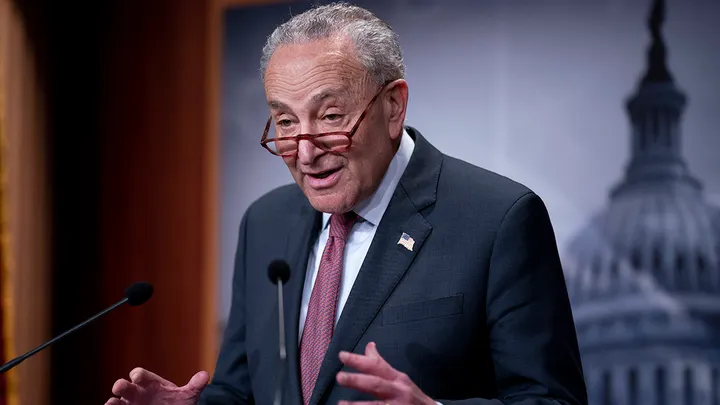The final vote saw 21 Republicans voting to kill the bill

A group of GOP hardliners, along with Democrats, effectively torpedoed the House Republicans’ stopgap funding bill last Friday, significantly heightening the possibility of a government shutdown this weekend.
A procedural vote aimed at advancing the bill was passed earlier in the day; however, the final passage failed with a vote count of 198 to 232. Notably, twenty-one Republicans, including Reps. Matt Gaetz (R-Fla.), Marjorie Taylor Greene (R-Ga.), and Nancy Mace (R-S.C.), among others, voted against it.
This outcome represents a substantial setback for Speaker Kevin McCarthy (R-Calif.), whose leadership has been under intense scrutiny and has faced public threats from the right flank of his conference throughout the ongoing spending battle.
The deadline for federal government funding looms, set to expire at the end of September 30. Failure by the House and Senate to strike a deal by then could result in a partial shutdown, forcing all federal functions deemed “nonessential” to grind to a halt.
The need for a short-term funding extension, known as a continuing resolution (CR), is almost certain. This extension would grant lawmakers more time to piece together the twelve individual spending bills required for fiscal year 2024.
However, Republican leaders have struggled to unite their conference and reach an agreement. A faction of conservatives has vehemently opposed any CR for weeks, arguing that it would merely extend the policies of the previous Democratically controlled Congress.
The House GOP’s CR proposal included an amendment that would reduce spending to fiscal 2022 levels, amounting to about $130 billion less than the current year’s budget. It also incorporated elements from the House Republicans’ border security bill. McCarthy additionally mentioned a new provision, which would mandate the creation of a bipartisan committee to study the federal debt.
McCarthy and his allies have endeavored to exert pressure on the holdouts, accusing them of aligning with Democrats and providing Senate Majority Leader Chuck Schumer (D-N.Y.) and the White House with greater leverage to pass government funding without conservative policy riders.
Before the Friday morning vote, the Speaker stated, “Every member will have to go on record… Are they willing to secure the border, or do they side with President Biden on an open border and vote against a measure to keep the government open?”
House GOP lawmakers convened behind closed doors at 4 p.m. on Friday to strategize a way forward. When asked about any backup plans after the CR’s failure, McCarthy simply responded, “Nothing right now.”
A government shutdown now appears all but inevitable, given the absence of an agreement on a short-term spending patch.
The Senate is currently developing its own CR, which would extend current funding levels for 45 days and include additional funding for Ukraine aid and U.S. disaster relief.
However, a straightforward extension of the previous Congress’s spending priorities faces strong opposition from a significant portion of House Republicans. McCarthy has also committed not to introduce a short-term spending bill containing Ukraine funding on the House floor.
McCarthy expressed his willingness to collaborate with Schumer on a CR, provided that it includes substantial border security measures.

